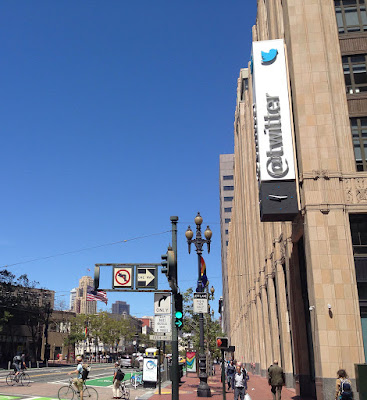Today, from the "Who Could Have Predicted This Besides Everybody?" department, we have: a study by psychologist David Blanchflower of Dartmouth College et al. that found that in the United States, the mental health of young people has shown enough of a decline that it has eliminated the "unhappiness hump" -- the former pattern that younger and older people were overall the happiest, with dissatisfaction ratings peaking in middle age.
Now, the lowest levels of happiness are in those between ages thirteen and twenty-five, and show a slow but steady increase with increasing age thereafter.
I don't know about you, but this came as no surprise to me. I've often thought that I would not want to be a teenager today. Some things have improved markedly -- opportunities for women and acceptance of minorities and LGBTQ+ people, for example -- but so many new factors have cropped up making life riskier and more difficult that it's hardly to be wondered at that young people are anxious.
Let's start with the fact that the current regime (1) is doing its level best to strip rights from anyone who isn't a straight white Christian male, (2) shows little regard for protecting what's left of the environment, and (3) is in the process of wrecking the economy with the ongoing tariff craziness. (About the latter, Trump and his cronies have taken the toddler-ish approach of "I'll just lie about it and everyone will believe me!" by declaring that the deficit is gone, jobs are surging, and the economy is booming. And don't believe the cash register; the prices of groceries and gasoline are down across the nation. Oh, and these are not the droids you're looking for.)
I mean, I'm retired, and I find it all depressing. A college student today facing the current job market would have to be willfully blind not to be anxious about their future.
What gets me, though, is how much you still hear the "suck it up and deal" response from the adults. To take just one example -- why should recent graduates be asking for student loan forgiveness? After all, we paid our student loans when we were that age, right?
Yep, we did. There's a reason for that. Between 1978 and 1982, my tuition to the University of Louisiana, along with all my textbooks, came to a total of about a thousand dollars a semester. Now, the average for tuition alone is around twelve thousand dollars a semester -- four times that if you go to a private school. Housing prices have gone up drastically as well -- in 1980, the average house sale price was seventy-five thousand dollars; now it's four hundred thousand dollars. The truth is that purchasing a house shortly after entering the job market was a realistic goal for someone in my generation, but for the current generation, it simply isn't. In fact, owning a home in the foreseeable future is out of reach for the majority of today's college graduates.
It's no wonder there's a "looming mental health crisis" -- to quote Blanchflower et al. -- amongst today's young people.
This crisis is exacerbated by people who seem bound and determined to paint this entire generation as "lazy" or "entitled," when in fact they are reacting the way just about any of us would when faced with impossible odds. Just yesterday I saw someone post on social media how infuriating it was that the emergency room was "clogged" with teenagers having emotional breakdowns now that the fall semester of college has started, and that they were sick of these needy kids expecting everyone to drop everything and minister to their whims. The truth is grimmer than that, and I can say this with some authority, as a person who has struggled with crippling anxiety and depression my entire life. Depressed people don't fake being mentally ill to get attention; we fake being okay to avoid it. When you see someone actually having a crisis, it is almost always because they have spent hours or days or weeks trying to suppress it, and eventually simply couldn't any more.
Might there be people who fake an episode in order to get care they don't really need? Sure. It's called Munchausen syndrome. But it's really uncommon. And in any case, isn't it better to give unnecessary care to one person who is pretending to be ill than to deny care to a hundred who do need it because you've decided they're all malingerers?
Maybe try having a scrap of fucking compassion.
Most of us mentally ill people are struggling along, trying to find a way to cope with a world that seems increasingly engineered to drag us down, while relying on a mental health care system that is drastically inadequate -- understaffed, overworked, and in general spread far too thin for the need. For myself, I manage most days. Some days I don't. On those days I lean hard into something a therapist told me -- "the biggest lie depression tells you is that the lows are permanent."
But as far as the way we treat others goes, that we can fix. We can work toward changing our society to lower the stressors on the upcoming generation. We can support our mental health care professionals, who are trying the best they can under extreme difficulties. And -- most of all -- we can recall what a family friend told me when I was six years old. I'd come home from school with my knickers in a twist over some perceived wrong by a classmate, and our wise friend blindsided me by saying, "Don't be so hard on your friend. You should always be kinder than you think you need to be, because everyone you meet is fighting a terrible battle that you know nothing about."
.jpg)





.jpeg)






